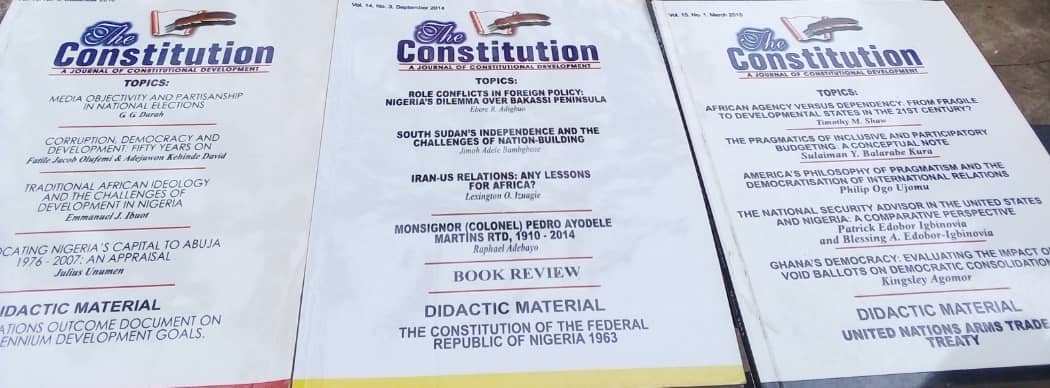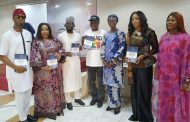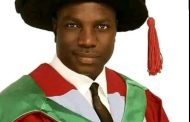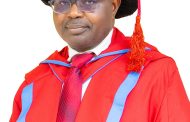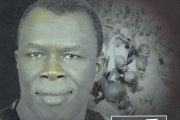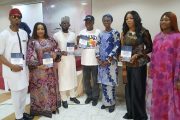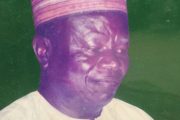Establishing a journal in Nigeria in the year 2000 and calling it The Constitution must have seemed the most foolish step to take. Almost nobody was anticipating much constitutional creases as democracy was firmly in place and its spokespersons were obliging the country assurances that it wasn’t going to be business as usual anymore.

The late exceptional Historian, Reuben Ziri in a March 2006 picture

Prof Sylvester Odion-Akhaine, mastermind of The Constitution
Only few souls such as the late Reuben Ziri, the Historian of ruling class psychology, Researcher at the Abuja based Community Action for Popular Participation, (CAPP) and then History Lecturer at IBB University in Lapai who was saying that democracy could not be taken for granted in the morning of a long dictatorship. The problem, he would say then, was not whether then President, Olusegun Obasanjo was a determined enough democrat or not. Ziri would argue that there were forces at play beyond Obasanjo.
It would seem now from the benefit of hindsight that there were people thinking along the same lines as Ziri. And Prof Sylvester Odion Akhaine, must be one of such persons or he would not have been the mastermind behind The Constitution. Twenty years after, democracy is basically in tatters as there is no consensus regarding the rule book for the democratic order.
Of course, there is no consensus anywhere in Nigeria over anything. The contestation is so loud now that the president had to assure a foreign audience recently that the country is alright or would soon be alright, words like that. Such statements are the greatest proof that there is trouble in Form Six because nobody tries to put aright what is not upside down.
Certainly, it is not every allegation against the president that has the status of truth, however understood. Still, there is a tragedy that, the fingers are pointing at the president as a person as far as the core of the stalemate is concerned. That should be a tragedy for any leader and the nation he or she leads. As the late Chief Sunday Awoniyi was used to saying, the office of the president of Nigeria is the office of the ultimate peacemaker, not the office of a Prefect.
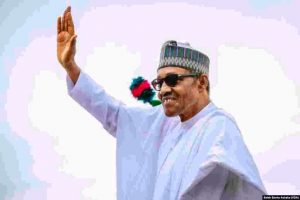
President Buhari, now reduced to having to defend his patriotism credentials against charges of sub-nationalism
In other words, it is not about whether President Buhari is guilty of nepotism, corruption or clarity to lead competently. It is that he has made it possible for his critics to subject position him as the trouble with Nigeria. There are no signs the president realises this. It doesn’t show in what pocket Buharites say.
This national context privileges attention to not just one of the few journals that has remained in the market but also a quarterly, multi-disciplinary journal dedicated to nurturing constitutionalism in Africa, constitutional development in Nigeria, democracy and development. Currently published as a double edition (March-June and September-December), morphing into an authoritative publishing outlet for cutting-edge academic research can be claimed for it.
Its parade of established scholars remains impressive, stretching from Prof Georges Nzongola-Ntalaja (North Carolina), Adebayo Williams (formerly of University of the incarnate Word), Rita Abrahamsen, (University of Ottawa), Sarah Bracking (University of Manchester), David Simon (London), Jonathan Seglow (University of London), Tim Shaw (University of Boston), Gabriel Lynch (University of Warwick), Kelechi Kalu (University of California,Riverside), Eboe Hutchful (Wayne State University) and Kwesi Aning (Kofi Annan Peacekeeping Centre, Ghana), Peter Ogaba Agbese (Northern Iowa) Babatunde Zak-Williams (University of Central Lancashire), Lanre Fagbohun (LASU), Sat Obiyan (OAU, Ife Ife), Julius Ihonvbere, David Mandiyanike (University of Botswana), Remi Aiyede (University of Ibadan) and Bolaji Omitola (OSU) among others.
The point about this listing is what it speaks to: knowledge as a sphere where all angles must be brought in so that it can satisfy the requirement of self-interrogation or reflexivity Or risk being useless for any purpose.
This is thus a celebration of an idea that has worked and a Nigerian site in the geopolitics of knowledge, a realm Nigeria is so much at war with itself to be able to enact itself, compared to South Africa, for instance. But it has to get out of that cage or continue to be reckoned with as a quantitative rather than a qualitative nation. That is the statement from The Constitution that this story is about.

